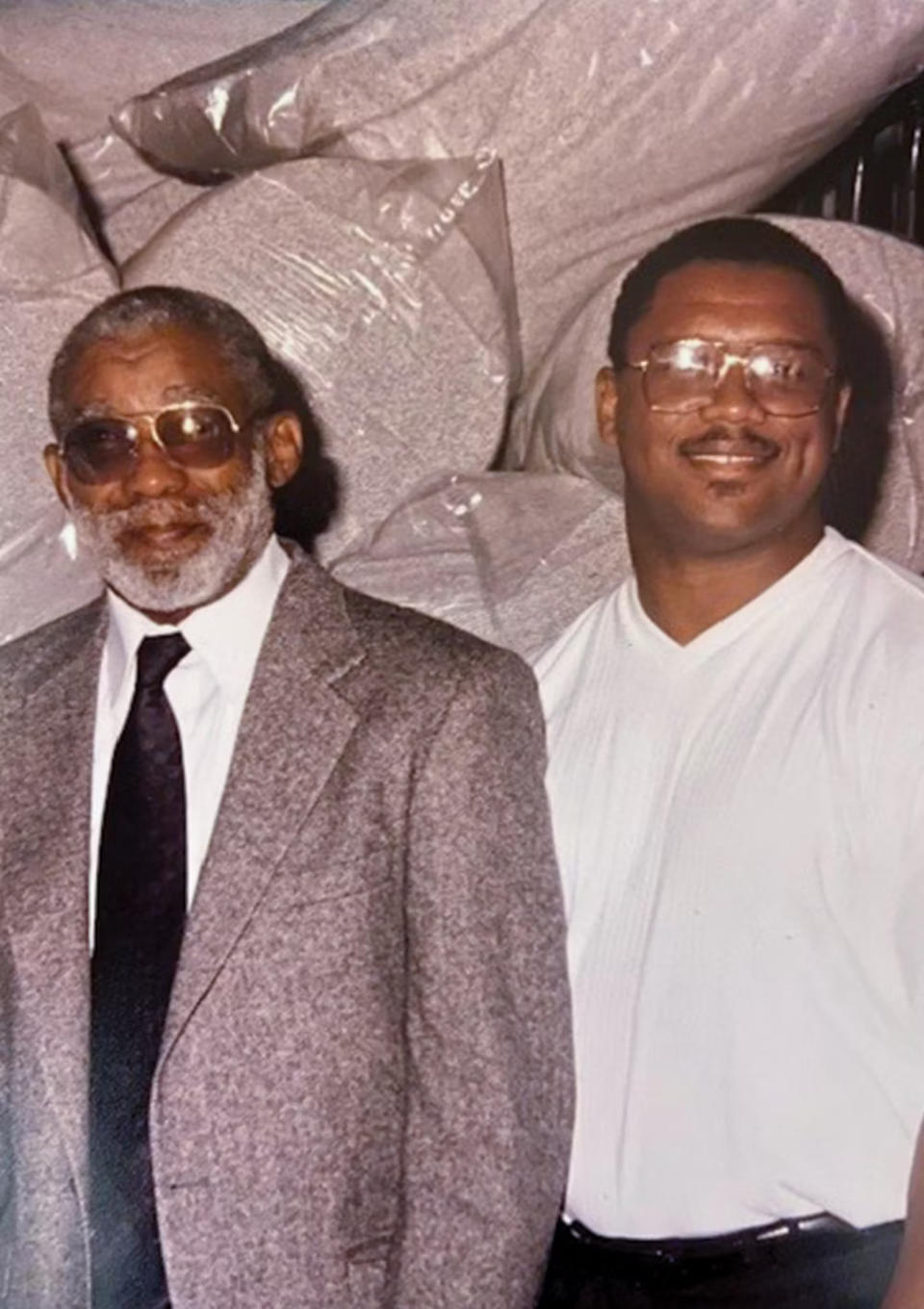Blending a Family’s History With the Future of Textiles
NORTHAMPTON, MA / ACCESSWIRE / June 13, 2024 / Eastman:
Pevas Bailey began his career in the textiles industry when he was 10 years old in Statesville, North Carolina. That's where his uncle was a mechanic at a local mill.
"When most kids were playing with toys, I was putting together knitting machines with him in our basement," Bailey said.
After more than four decades in the industry, he's now using his experience and knowledge to help customers produce more sustainable textiles with Eastman Naia™ cellulosic fiber. The fibers are developed to be more eco-friendly by minimizing waste, conserving natural resources and lowering environmental impact.
His work takes him around the globe, a long way from his beginnings in North Carolina.
A family path
After being known as one of the top textile mechanics in the industry, Bailey's uncle eventually started his own company. Bailey began working there in high school. By the time he entered the Wilson School of Textiles at North Carolina State University, he knew almost everything about manufacturing.
"I got my degree in textile management because my uncle wanted me to have the business side of the education," he said. "The technical side I had."
Each weekend he'd return home from college to work for his uncle. One Thursday, a professor explained that it was only possible to knit fabrics one way. Bailey spent the weekend with his uncle modifying a machine to create a new way of knitting, which he showed his professor the following Monday. Bailey and his uncle were going to commercialize it, but emerging computerized technology outpaced their mechanical process.
With graduation nearing, Bailey wasn't applying to many jobs. He wanted to earn his degree and work for his uncle to thank him for getting him started.
When Bailey's professors and assistant dean learned he skipped a recruitment session with the Sara Lee Corporation, which owned the Hanes clothing brand, they asked the company to interview him. He was offered a job and went on to work at multiple Sara Lee locations across North Carolina, Virginia and Georgia in the first four years after college.
In 1998, he and his wife moved back to Statesville to help his uncle expand his business and to raise their two children. Seven years later, his uncle was diagnosed with cancer and died shortly after. Bailey inherited the business and ran it for several years.
His uncle inspired Bailey to always put quality first through his commitment to work and to people. And that legacy lives on.
"I closed the business in 2010, and I still have some of his former employees calling me to this day just to say nothing but ‘I was thinking about your uncle and missed him,'" he said. "That's how beloved he was."
The future of textiles
Bailey had never heard about sustainability within textiles, but his daughter encouraged him to learn more about the topic around the time he interviewed at Eastman before joining the company in 2019.
Today, as an application development and technical service representative, he's passionate about helping customers. He helps them learn how sustainable fibers and manufacturing practices can make a positive environmental impact. His deep industry knowledge and manufacturing experience allow him to help customers implement Naia™ into their machines and designs.
Bailey is hopeful about what sustainable fibers promise for mitigating climate change and preventing pollution because he wants a bright future for his grandchildren.
"We've got to start fixing this now or our kids don't stand a chance," he said. "We have to start thinking of how we can change this world. I'm glad Eastman's taking the stance to make that change, and I'm glad to be a part of moving in that direction."
Weaving diversity into the workplace
When Pevas Bailey moved to Kingsport, Tennessee, and began working at Eastman, he wanted to find community for his family. He joined Connect, an Eastman Resource Group (ERG) that promotes the inclusion, development and advancement of African American and Black team members throughout the company. ERGs help underrepresented employees grow professionally, network with colleagues and maximize their business contributions.
"The Connect group is one of the reasons why my family's happy here," Bailey said. "Having this community helped us transition to this region. I think Connect is a good vehicle to show our value and encourage more acceptance because of some of the activities that we get involved in."
Bailey is a mentor with IGNITE, a program started by Connect and Eastman Public Affairs to help middle and high school students plan for their future and career. He's also participated in events like the annual Martin Luther King Jr. parade in Kingsport.

View additional multimedia and more ESG storytelling from Eastman on 3blmedia.com.
Contact Info:
Spokesperson: Eastman
Website: https://www.3blmedia.com/profiles/eastman
Email: info@3blmedia.com
SOURCE: Eastman
View the original press release on accesswire.com

 Yahoo Finance
Yahoo Finance 